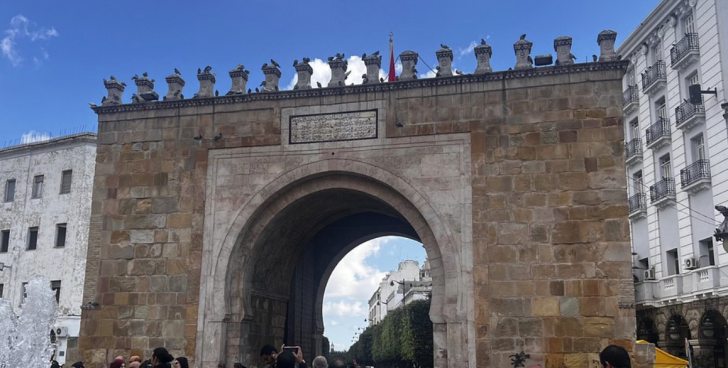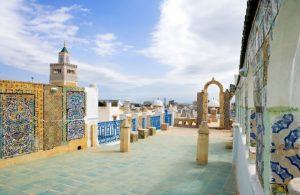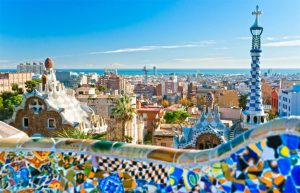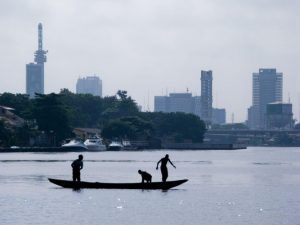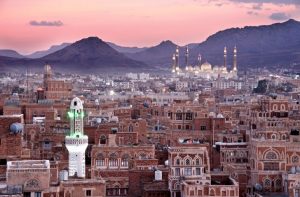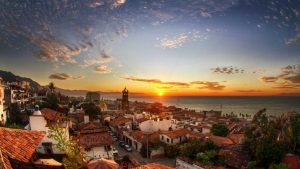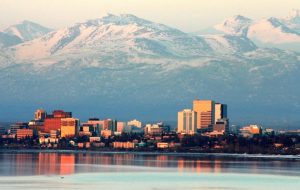 Tunisia : Safety by City
Tunisia : Safety by City
Tunisia - safety as a country Tunisia is a city that’s constantly beaming with life.
From rugged outlying islands where wildlife is plentiful to densely populated cities like Tunis, the country has plenty to offer every visitor.
Bab Bhar is a neighborhood comprising the city center and several smaller satellite neighborhoods.
This area has the most to offer visitors due to the history, restaurants, and shops that dot the streets.
Tunis is not the safest city due to constant threats of pickpockets, muggings, terrorism, and scams.
The streets shut down at 8 PM, so it’s not advisable to wander after that time.
If you’re interested in visiting the cultural gem of Bab Bhar, keep reading to learn more!
Warnings & Dangers in Bab Bhar

OVERALL RISK: MEDIUM
Bab Bhar comprises the Tunis City Center and a few other smaller neighborhoods. Given that this location has the highest population, especially during weekdays due to the commuters, you can feel safe if you follow a few rules. First, don’t wander around the neighborhood once the sun goes down. Second, don’t leave items unattended. Third, don’t get drunk in public. Finally, protect your wallet by keeping it in your front pocket.

TRANSPORT & TAXIS RISK: MEDIUM
Tourists are not recommended to travel on local buses since the drivers can be rough and often don’t follow traffic rules. Also, women are regularly verbally harassed, and pickpocketers are roaming around, especially on busy buses. Taxis can be safe, but it’s important to order a regulated service with a driver who turns on the meter. If there is no meter installed in the car, agree on a price at the beginning of the trip before you sit down.

PICKPOCKETS RISK: MEDIUM
Bag snatching and pickpocketing are common occurrences in Bab Bhar and around the country. It’s essential to remain vigilant in crowded places like public transportation, markets, and tourist attractions. Also, when visiting local beaches and coastal areas, never leave your belongings unattended, even if for a moment. If you rent a car, make sure to put your items in the trunk or out of sight.

NATURAL DISASTERS RISK: LOW
Although Bab Bhar is susceptible to flooding during the winter, droughts during the summer, and occasional earthquakes, it’s not a reason to stay home. Natural disasters are the lowest risk on this list, so it is best to always be prepared by listening to local authorities, but this should not be a concern.

MUGGING RISK: MEDIUM
The most active areas of mugging or kidnapping in Bab Bhar are abandoned and poorly lit areas where criminals are waiting. Kidnappings are the highest around the Libyan border, which is nowhere near Bab Bhar, so this should not be a concern for visitors. If you end up in a desolate area, calmly turn around and go back to the populated area from where you came.

TERRORISM RISK: MEDIUM
Tunisia is known for having a high level of terrorism, so the risk continues to be medium in Bab Bhar. Religious locations around Tunis tend to be terrorist targets, so pay extra attention to the environment when visiting these sites. Outside of Bab Bhar, a high level of terrorism occurs in the countryside, especially near the Algerian and Libyan borders, where bandits are roaming the streets.

SCAMS RISK: MEDIUM
Deception and other petty fraud are always around the corner for tourists. For instance, some street vendors sell fake entrance tickets and excursions, so never purchase from a random course, regardless of how good the price may seem. Also, don’t purchase cheap items and other inexpensive goods that will likely turn out to be fake and of poor quality. Additionally, be aware of criminals posing as tour guides to take your money and then leave the area.

WOMEN TRAVELERS RISK: MEDIUM
Women can be safe when visiting Bab Bhar if they use common sense and don’t walk around the area alone at night. Also, it’s best to skip public transit, opt for taxis, and wear modest clothing, especially in and around religious sites. Street harassment can sometimes be an issue, with unsolicited comments, catcalling, whistling, and staring as the norm. It’s best to ignore them and move on with your day, no matter how persistent and annoying they may be.

TAP WATER RISK: HIGH
Although Tunis’s tap water is safe to drink because it is treated, it’s not recommended due to significant treatment practices compared to what most visitors are used to, especially in Western countries. The result is an upset stomach for many travelers. It’s advisable to purchase bottled water, which is incredibly cheap in Tunisia, or water treated using consistent purification processes, like boiling at your accommodation.
Safest Places to Visit in Bab Bhar
Tunis and the surrounding areas are heavily divided between the extremely wealthy and those under the country’s poverty line, resulting in safe and dangerous areas.
One of the safest areas of the city is Bab Bhar, which is divided into the Old Quarter and the City Center.
This section contains many ancient shops and buildings and mosques, so it’s relatively well-patrolled and safe but shuts down at sundown.
In the more modern area of the city near Kasbah Square are more modern buildings for commuters, which are also safe during the day.
However, this area often has demonstrations and protests, so it’s best to not enter the square when there are large crowds.
Places to Avoid in Bab Bhar
One place to avoid, especially at night, is the Medina of Tunis, which has many shops, buildings, and restaurants.
However, once the sun sets, the area shuts down lending the land to criminals and scammers, so it’s best to avoid it.
Safety Tips for Traveling to Bab Bhar
- Avoid Public Demonstrations. Demonstrations and protests often start peacefully but can become violent quickly, so they are best avoided by visitors. Since their protest isn’t your fight, always take a different route if you see a protest on the street and never walk through the demonstration as your safety could be at risk and police may think you are part of the event. If you cannot find an alternate path, then take a taxi to your destination to avoid the crowd.
- Be Wary of Those Asking for Help. Locals tend to politely bypass tourists, so those who offer or ask for help have ulterior motives. Individuals who are persistently pestering you with conversations clearly want something from you, so it’s best to get away from them by going into a hotel, shop, or other establishment. If you need help, ask a local police officer, not a stranger, who may purposely give you bad advice to pickpocket you or worse.
- Don’t Cut Through Abandoned Areas. Many times, the fastest way to get between two points is to cut through a questionable area that’s abandoned, dimly lit, and off-the-beaten path. When visiting Bab Bhar, avoid cutting through these areas and simply walk around. While the route may take you longer, it could save you a massive headache or injury from getting robbed in the desolate area.
- Dress Appropriately. Bar Bhar and Tunis are highly conservative, so women should dress modestly by wearing long dresses and covering their shoulders. Also, it’s critical to wear a headscarf when visiting local religious sites, as it can be incredibly offensive to the culture if you don’t follow the local customs. Although there are no restrictions on men’s clothing, most locals don’t wear shorts, regardless of the temperature, so wear jeans or flowing linen pants to better blend in.
- Get the Highest Car Insurance Coverage. The World Health Organization reports that Tunisia has some of the worst traffic accident records in all of North Africa, so most visitors are happy to allow taxis, shuttles, and tour companies to do the driving. Those who enjoy making driving part of their Bab Bhar experience always get the highest level of car insurance when renting an automobile. The roads are not well maintained, so they are full of potholes, and there is little lighting at night. In addition to purchasing the highest car insurance coverage, try not to drive during rush hour or inclement weather.
- If You’re Address in English, it’s likely a Scammer. Since the two main languages in Bab Bhar are Arabic and French, which are used interchangeably, if a local addresses you in English, then they are likely a scammer. The best reaction is to simply say no thank you and leave the area. This ties into a local asking you for help or helping in English. As this occurs, also be aware of those around you and ensure you aren’t followed.
- Keep Important Documents in the Hotel Safe. Driver’s licenses, passports, backup credit cards, and other important documents must be kept safe in the hotel. You cannot leave them out in your room and trust the cleaning staff not to steal the documents. You also don’t want them on you in public in case you are pickpocketed or robbed. Ensuring that the hotel has a safe before booking is important and should be a factor when looking at different accommodations.
- Remain Hydrated. Although Bab Bhar is a neighborhood in Tunis that sits on the Mediterranean Coastline, it gets incredibly hot and dry during the summer. Therefore, it’s critical to bring bottled water on all your adventures, even if only walking around town for a few hours. If you venture into the desert, this requirement is even more crucial for your safety. While Tunis’s water is sanitized and drinkable, you may not be used to the chemicals, which can cause an upset stomach, so bottled water is recommended.
- Take What You Need for the Day. Always bring the amount of cash needed for the day and one credit card, then leave all other money and credit cards at your accommodation in the safe. Splitting up financial cards and cash ensures that you have plenty of money if you are pickpocketed or robbed.
- Wear Cross-Body Handbags. Before visiting Bab Bhar, purchase a cross-body handbag with cut-proof straps to protect your daily belongings. Also, many people opt to wear a money belt under their clothing, which is the ultimate protective option for money and credit cards. This is especially important in markets on busy streets and at tourist attractions.
So... How Safe Is Bab Bhar Really?
Bab Bhar is not considered a safe area, and Tunis is not the safest city.
The streets tend to empty after 8 PM, with only petty thieves and beggars remaining.
Criminals attempt to deceive tourists every chance they have, beginning with inflated prices on cheap items and fake tickets to attractions and excursions.
Since Tunis has a high unemployment rate, there’s an excessive number of beggars who cannot afford to live there.
Most are harmless, but always be aware of your pockets since pickpocketing is common.
Asking for advice from taxi drivers or sellers comes with the expectation of a monetary reward, and they will insist upon it.
Overall, Bab Bhar and Tunis can be safe if you use common sense and follow the recommended safety tips.
Like with any city, rely on your instinct, and if something doesn’t feel right, simply leave the area or situation.
How Does Bab Bhar Compare?
| City | Safety Index |
|---|---|
| Bab Bhar | 56 |
| Djerba | 53 |
| Tunis | 59 |
| Hammamet | 78 |
| Sidi Bou Said | 42 |
| Mahdia | 32 |
| Kairouan Medina | 52 |
| Sao Paulo (Brazil) | 45 |
| Rio de Janeiro (Brazil) | 43 |
| Sofia (Bulgaria) | 73 |
| Siem Reap (Cambodia) | 63 |
| Phnom Penh (Cambodia) | 61 |
| Niagara Falls (Canada) | 87 |
Useful Information

Visas
Citizens from 97 countries and terrorists can visit the country without a visa for 90 days. Those from countries not on the list must acquire a visa by contacting the local State Department to understand the process. All travelers must have a valid passport to enter Tunisia.

Currency
The Tunisian Dinar is the official currency of the country. The Dinar is divided into 1,000 millimes, and the currency abbreviation is DT. Also, if you see TD, it is the French derivation of DT, which also indicates the official currency. ATMs are plentiful around Bab Bhar and Tunis and credit cards are widely accepted in international shops, hotels, restaurants, and brands.

Weather
The best time to visit the city is in the Spring, specifically between April and June, and fall, between September and November. This is the time of the year when the temperatures are the most comfortable and dry, with a low chance of precipitation. Since Bab Bhar is on the coast, the temperatures are cooler in the summer, and the rest of the year is more comfortable than in the rest of the country.

Airports
The closest airport to Bab Bhar is the Tunis-Carthage International Airport, which is located only four miles from the city center. The airport services domestic and international flights and was named after the historic Tunisian city of Carthage.

Travel Insurance
When visiting any international location, it’s critical to purchase travel insurance, which can financially protect you against lost or delayed luggage, delayed or canceled flights, theft, and a host of other benefits. Most importantly, travel insurance includes medical coverage in case you are injured while visiting Tunisia.
Tunisia - Safety by City
| City | Safety Index |
|---|---|
| Bab Bhar | 56 |
| Djerba | 53 |
| Hammamet | 78 |
| Kairouan Medina | 52 |
| Mahdia | 32 |
| Sidi Bou Said | 42 |
| Sousse | 48 |
| Tunis | 59 |
